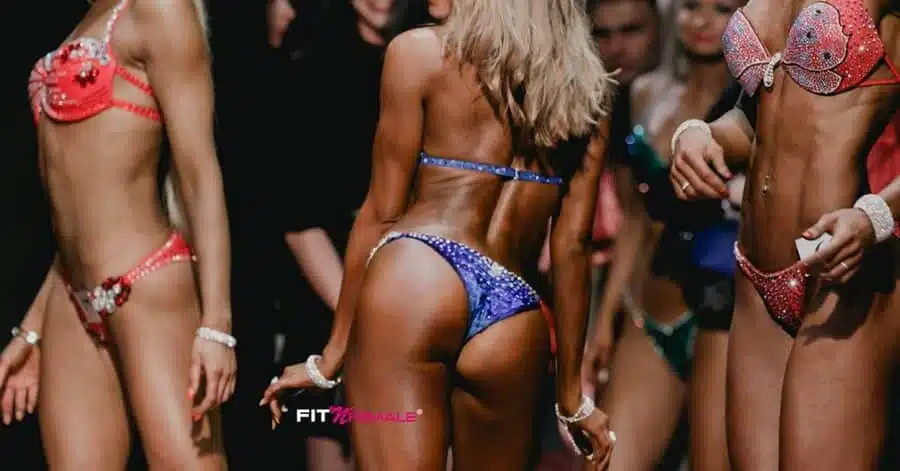If you practice weight training as a hobby without any competitive ambitions, you already know that the subject is already very complex in itself, since countless training programs, nutrition and the wide range of supplements represent a not inconsiderable challenge. The matter is even more complicated if you want to take the step onto the stage, because competition preparation is a completely different matter.
Especially when you are preparing for your first competition, it makes little sense to get lost in the details. As in many other areas of life, you should first concentrate on avoiding mistakes. And that's exactly why we would like to show you the three biggest mistakes in competition preparation in this article, so that you can avoid them right from the start.
Error 1 - You take too little time
In competition preparation, scheduling enough time is absolutely the most important factor. Nevertheless, most athletes underestimate the amount of time it takes to get in perfect shape for a competition or photo shoot. To figure out how much time you should allow in any event, you can use the shape of your abs as a guide. If your abs are hidden under a layer of fat, you should roughly plan on 16 to 20 weeks. Otherwise, the preparation for the competition will turn into a crash diet, during which you will lose a lot of muscle mass as well as body fat, and you will end up looking thin and contourless rather than defined. After the rough visual assessment follows the definition of how much body fat you want to lose or what body fat percentage you are aiming for. This, in turn, gives you a more precise indication of the period of time you need to plan for your competition preparation. Plan on losing 500 grams of fat per week, which corresponds to a daily energy deficit of 500 kilocalories. A higher deficit is not really beneficial for your shape, because as your calorie deficit increases, your body will also lose more muscle. In terms of training, you keep the pattern of the build-up phase, because contrary to what many think, strength endurance training with a high number of repetitions is counterproductive during a diet. The answer to why is actually quite simple, because the high number of repetitions with light weights decreases the training intensity. So since the muscles are no longer provided with growth stimuli, the organism assumes that they are no longer needed. And since there is already little energy available due to the diet, the organism tends to break down the muscles that are no longer needed in order to save energy. Excessive training, with the aim of burning extra calories in the shortest possible time, is therefore also not a means of achieving perfect competition form. In addition, you should plan your preparation with a time buffer of 2-3 weeks, so that in the optimum case you are already in good shape early and still have time in case of emergency and are not dependent on crash diets.
Error 2 - Too much dependence on fat burners
Many athletes build their competition preparation around three elements. They reduce their calorie intake, increase the weekly cardio volume and finally, they start taking fat burners at the same time. With this, most athletes also achieve success. At least for a while. The problem with this, however, is that you don't know which measure will ultimately work. You also lack clarity about what to do when you reach a plateau. Therefore, you should not start with the full program and throw in everything on the market in terms of fat burners and supplements from the beginning. It is much better to follow rule 1 and take your time to build up your preparation slowly and gradually. Start by adjusting your diet and watch your progress. After two to three weeks, start weaving in cardio sessions to increase your calorie consumption. In general, it is better to increase energy expenditure through moderate cardio training than to further reduce food intake, even in competition preparation. Finally, in the last six weeks you can turn to fat burners to attack the last stubborn fat deposits. Supplements are not only effective in fat loss, but they also give you an extra boost of energy that helps you push through workouts at full power despite reduced food intake. However, you should stop taking fat burners a few days before the competition, especially since many products negatively affect carbohydrate intake, which is important for muscle volume on competition day.
Error 3 - Last minute changes
This is where the great confusion begins for most novices to race preparation, as tips and tricks abound on how to supposedly optimize form in the final days and even hours before the race through special salt and carbohydrate loading and unloading regimens. But the result in most cases is that you look worse than before after such a last-minute hustle. Let's get one thing straight: Of course, many of these loading schemes make sense. But they only make athletes look their best if they already have excellent form a week before day X. But they can in no way iron out suboptimal preparation within a few days. So, as you can see, avoiding mistake 1 is paramount here as well. So if you notice shortly before the competition that you are not yet in good shape, then experiments will not help. This is especially true for your first competition, as you will gain experience from time to time and can exchange ideas with experienced athletes. Once you have gained your first experiences, you can finally turn to an experienced coach for further competitions and find out together which concept of water, salt and carbohydrate regulation works best for you. But it's worth mentioning again: without you already being in good basic shape, such adaptations are simply pointless.




